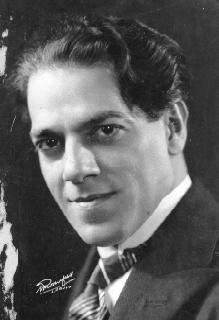Related Research Articles

Heitor Villa-Lobos was a Brazilian composer, conductor, cellist, and classical guitarist described as "the single most significant creative figure in 20th-century Brazilian art music". Villa-Lobos has become the best-known South American composer of all time. A prolific composer, he wrote numerous orchestral, chamber, instrumental and vocal works, totaling over 2,000 works by his death in 1959. His music was influenced by both Brazilian folk music and stylistic elements from the European classical tradition, as exemplified by his Bachianas Brasileiras and his Chôros. His Etudes for classical guitar (1929) were dedicated to Andrés Segovia, while his 5 Preludes (1940) were dedicated to his spouse Arminda Neves d'Almeida, a.k.a. "Mindinha". Both are important works in the classical guitar repertory.
Prelude No. 1 is a guitar piece written by Brazilian composer Heitor Villa-Lobos.
Prelude No. 4 is a guitar piece written by Brazilian composer Heitor Villa-Lobos.

Chôros No. 1 is a composition for guitar by the Brazilian composer Heitor Villa-Lobos, written in 1920.

Chôros No. 3, "Pica-pau" (Woodpecker) is a work for male choir or instrumental septet, or both together, written in 1925 by the Brazilian composer Heitor Villa-Lobos. It forms a part of a series of fourteen numbered compositions collectively titled Chôros, ranging from solos for guitar and for piano up to works scored for soloist or chorus with orchestra or multiple orchestras. and in duration up to over an hour. Chôros No. 3 is one of the shorter members of the series, a performance lasting about three-and-a-half minutes.

Chôros No. 4 is a quartet for three horns and trombone, written in 1926 by the Brazilian composer Heitor Villa-Lobos. It forms a part of a series of fourteen numbered compositions collectively titled Chôros, ranging from solos for guitar and for piano up to works scored for soloist or chorus with orchestra or multiple orchestras, and in duration up to over an hour. Chôros No. 4 is one of the shorter members of the series, a performance lasting about five-and-a-half minutes.

Chôros No. 14 is a work for choruses, orchestra, and band, written in 1928 by the Brazilian composer Heitor Villa-Lobos. It is the last of a series of fourteen numbered compositions collectively titled Chôros, ranging from solos for guitar and for piano up to works scored for soloist or chorus with orchestra or multiple orchestras, and in duration up to over an hour. The whereabouts of the score of Chôros No. 14 is unknown.

The Quinteto is a chamber-music composition by the Brazilian composer Heitor Villa-Lobos, written in 1928. Originally scored for five woodwind instruments, it is most often performed in an arrangement for the conventional wind quintet of flute, oboe, clarinet, horn, and bassoon. A performance lasts about eleven minutes.

Symphony No. 1O Imprevisto is a composition by the Brazilian composer Heitor Villa-Lobos, written in 1916. A performance lasts about twenty-five minutes.

Symphony No. 2, Ascensão (Ascension) is a composition by the Brazilian composer Heitor Villa-Lobos, written between 1917 and 1944.

Symphony No. 5, A Paz (Peace) is a composition by the Brazilian composer Heitor Villa-Lobos, written in 1920. The score has been lost.

Symphony No. 6Sobre a linha das montanhas do Brasil is a composition by the Brazilian composer Heitor Villa-Lobos, written in 1944. It lasts about twenty-five minutes in performance.

Symphony No. 7, Odisséia da paz is a composition by the Brazilian composer Heitor Villa-Lobos, written in 1945. A performance lasts about 30 minutes.

Symphony No. 8 is a composition by the Brazilian composer Heitor Villa-Lobos, written in 1950. A performance lasts about 25 minutes

Symphony No. 9 is a composition by the Brazilian composer Heitor Villa-Lobos, written in 1952. A performance lasts about twenty minutes.

Symphony No. 11 is a composition by the Brazilian composer Heitor Villa-Lobos, written in 1955. A performance lasts about twenty-five minutes.

Symphony No. 12 is a composition by the Brazilian composer Heitor Villa-Lobos, written in 1957. A performance lasts about twenty-five minutes.

Nonet, subtitled "Impressão rápida de todo o Brasil" is a chamber-music work by the Brazilian composer Heitor Villa-Lobos, written in 1923. It is number W191 in the catalogue of works compiled by David Appleby.
Prelude No. 2 is a guitar piece written by Brazilian composer Heitor Villa-Lobos.
Prelude No. 3 is a guitar piece written by Brazilian composer Heitor Villa-Lobos.
References
- ↑ Villa-Lobos, sua obra 2009, p. 153.
- ↑ Béhague 1994, p. 142.
Sources
- Béhague, Gerard. 1994. Villa-Lobos: The Search for Brazil's Musical Soul. Austin: Institute of Latin American Studies, University of Texas at Austin. ISBN 0-292-70823-8.
- Villa-Lobos, sua obra . 2009. Version 1.0. MinC / IBRAM, and the Museu Villa-Lobos. Based on the third edition, 1989.